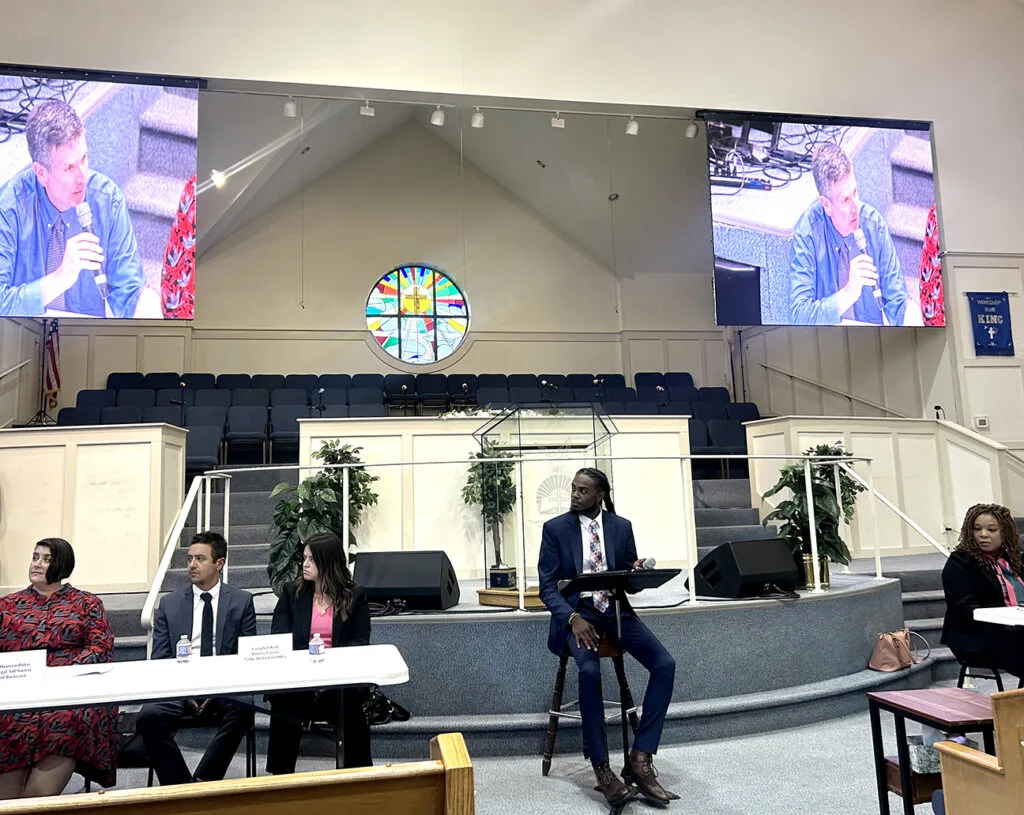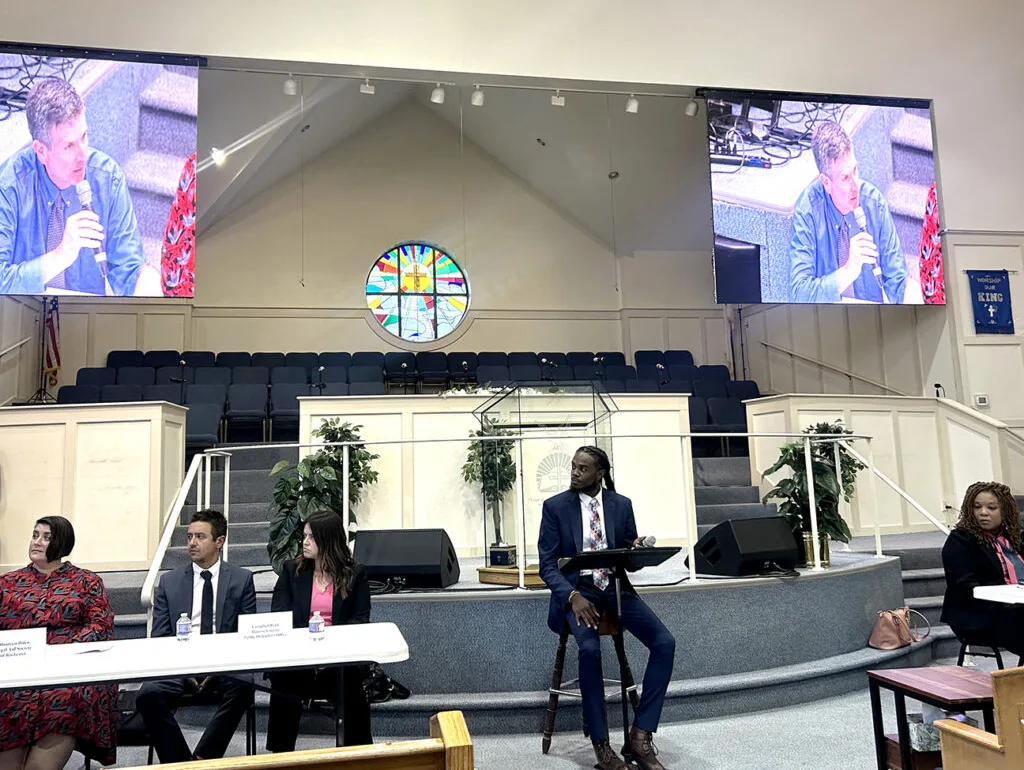
Dozens gathered in Rochester, New York, Tuesday night at a rare meeting of parents, community service providers, and attorneys to discuss juvenile justice — a system often misunderstood by the public outside of the children, youth and families involved.
The event, held Tuesday night at the First Genesis Baptist Church and hosted by the Rochester Black Bar Association, revealed the public’s ongoing concerns about the way young people are handled by the justice system.
The bar association’s treasurer, Curtis Jones, opened the “Prosecuting Juveniles: Fact or Fiction” town hall by noting some residents’ concerns stemming from a sense that juveniles are increasingly involved in stealing cars, causing property damage and committing acts of violence. But he also described a thirst for fair treatment.
“As attorneys who live in the community, we hear, feel and understand the concerns of how our cases are being handled, what’s being done and what we can do as a community,” Jones said.
The roughly 40 people in attendance for the two-hour evening town hall had an opportunity to pose questions to officials who defend, prosecute or supervise youth when they’re in detention or probation.
The audience included Democratic Assemblymember Demond Meeks, an attorney vying for a seat on the family court bench, as well as nonprofit human service providers and parents of kids who ended up in the justice system.
“What are we as people demanding of the system to help these young people?”
— Marie Barnes, Hillside Children’s Center
Audience members wanted to know whether attorneys in the juvenile justice system receive implicit bias training, which cases get diverted from the adult court system, and if the courts and probation officers consider what is happening in a youth’s home life when making decisions about how to handle a case.
“What are we as people demanding of the system to help these young people?” Marie Barnes, a supervisor at Hillside Children’s Center’s residential facility for teens, said during a break in the meeting. Barnes said she was concerned about children in the juvenile justice system being able to access appropriate mental health services.
Two mothers wanted answers about the availability of county services, and how to connect with children for whom their messaging isn’t “clicking.” They described dissatisfaction with the Persons In Need of Supervision Program and expressed the need for more support when children violate probation or run away.
Justice officials gave an overview of how the system works from the time of arrest to when probation terms are set, hearings in Monroe County Family Court and for some youth, hearings in a specialized adult criminal court.
In New York, the most serious and violent felonies, including sex offenses, murder and weapons charges, are handled in a division of the courts called the Youth Part. The state’s 2017 Raise The Age legislation created a section within adult criminal courts specifically for 16- and 17-year-old defendants, some of whom are later diverted to family court.
Attorney Mark Phillips of the Monroe County Public Defender’s Office described family court as “half court and half social work.”
Panelists discussed ways local officials try to keep kids from falling deeper into the juvenile justice system, including probation officer Cynthia Smith. She described her office’s new Juvenile Enhanced Diversion Stabilization program, in which probation officers make daily contact with youth and their families for two or three weeks.
The stakes are highest for youth of color. In Monroe County, 75% of the 194 admissions to pretrial juvenile detention centers last year were Black or African-American and another 20% were Hispanic, according to state data, in a population where those populations comprise 16.6% and 9.9% respectively.
County prosecutor Brian Green said the number of juvenile cases his office has prosecuted has increased since last year. But he noted that roughly 10% result in out-of-home placements in residential facilities or detention centers, a number he said has remained steady.
A spokesperson for the Rochester Black Bar Association said in an email today that the town hall event was a first in a while for the city, given that local residents and law enforcement do “not regularly get together.”
“There has been a lot of misinformation presented concerning juveniles and there has been a lot of blame placed on different governmental entities,” she said. The goal of the public event “was to dispel some of these myths and present facts.”
One comment by a panelist at the event — the Legal Aid Society of Rochester’s director of juvenile justice, Steven Weisbeck — seemed to resonate among attendees.
Many burst into applause when he said: “The knee-jerk reaction of ‘we need to build more detention facilities, we need to be tough on crime, we need to spend money on having a local detention facility and lock what will amount to more of our children of color up and criminalize them’ is just not the answer.”



